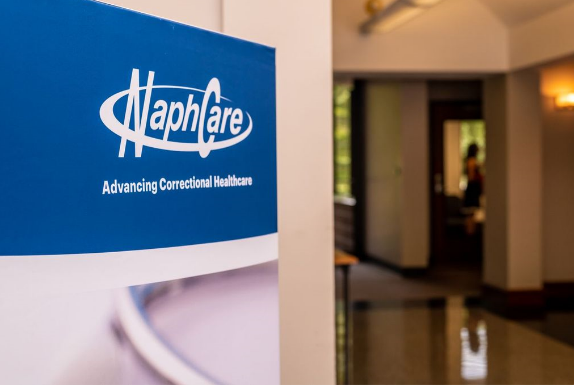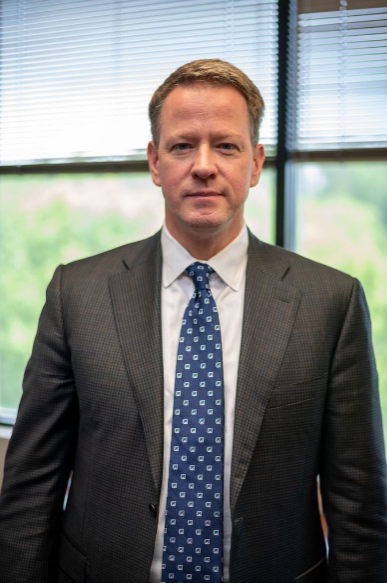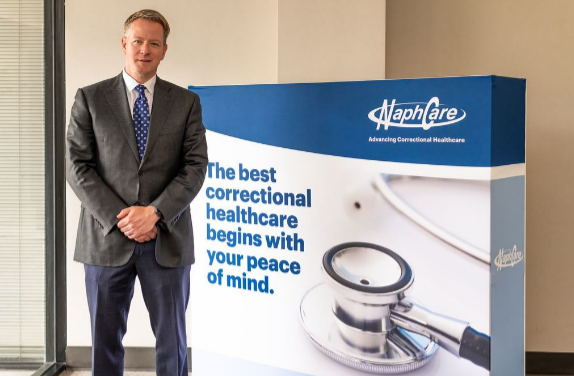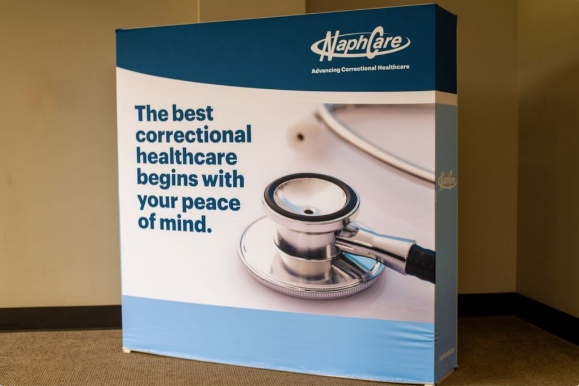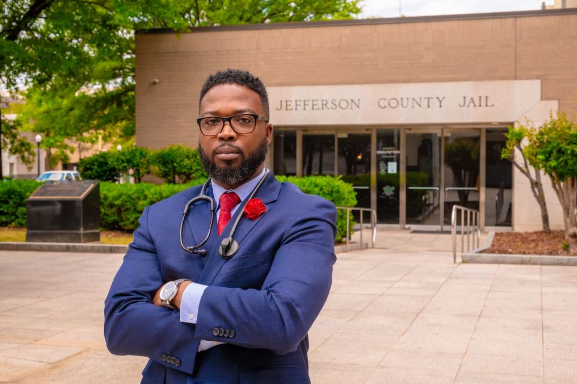By Erica Wright
The Birmingham Times
Beginning June 1, Jefferson County jails will get a new health care provider—Birmingham-based NaphCare Inc., which offers correctional services across 27 states. The company will oversee medical care for the jails in Birmingham and Bessemer under a three-year contract with two optional one-year renewals; the first year is at $4.8 million.
The family-owned and operated NaphCare, founded in 1989, has more than $300 million in annual revenues and 2,000-plus employees. The previous health provider had the contract since 2011.
Bradford T. McLane, casually called “Brad,” was named CEO of NaphCare in January. He said the company has always focused on a proactive approach to quality care, and that’s what his team will bring to Jefferson County.
“People who are arrested and come into the jail will get more care and be assessed more quickly and more effectively,” he said in an interview with The Birmingham Times. “First, [we] determine if they are healthy enough to come into the jail and don’t need to go to the hospital. Once they are cleared, we figure out their health care needs.
“People have a constitutional right to health care when they are in jail, and [NaphCare] has a humanitarian approach to providing [that] care,” he said, … “We’re only interested in partnering with local governments that are committed to providing a high level of care.”
In Jefferson County, the total staffing consists of just more than 41 full-time-equivalent employees, which includes one health services administrator, one nurse practitioner, 12 registered nurses, 18 licensed practical nurses, one medical records clerk or assistant, one administrative assistant, one psychiatrist, one psych nurse practitioner, one mental health professional, one dentist, and one dental assistant.
Pivotal Time
Even before entering general population in jail, inmates go through a rigorous screening process to determine health care needs. Treatment plans, if needed, are developed immediately, McLane said.
“In a jail environment, there are a lot of people being arrested and coming into the [facility] who have not taken very good care of themselves and have not had good health care. Often, [some] people coming into jails are mentally ill and have substance-use disorders, … so it’s very important to assess patients at intake,” he said.
NaphCare’s work in the jails comes during a pivotal time.
“COVID-19 makes [care] a lot more challenging because there is a huge risk when going in and out of correctional facilities, with [the disease] in the city, so we have to take a lot of precautions,” said Cornelius Henderson, NaphCare Senior Vice President of Jail Operations. “We have to wear masks and gloves and practice hand washing and social distancing. … It is quite tough inside of a jail because it is a confined area and space. We have to be very careful how we interact with our staff and inmates, which kind of slows the process down, but we’re managing well and have experience with pandemics or illnesses” at our other facilities.
Services
NaphCare, which operates in more than 70 local, state, and federal facilities, provides services that include proactive care, pharmacy, mental health, dialysis, and telehealth.
“Mental health needs are a big part of correctional health care, so we [involve] psychiatrists, psychiatric nurse practitioners, and mental health professionals,” said McLane.
The key is to intervene early and treat patients before chronic conditions can worsen.
“An example of how we do that is under [National Commission for Correctional Healthcare (NCCHC)] standards—we have to do a medical intake screening within five hours of the patient arriving; within 14 days we have to do a mental health screen and history of physical examination,” said McLane. “One statistic we refer to a lot is that 40 percent of people who die in jail will die within the first seven days, so those first few hours [through] the first seven days when someone comes in are critical [times] to intervene and identify patient needs and address them as much as possible.”
NaphCare also has created a software that allows corporate clinical staff to be in constant contact with jail sites.
That telehealth service means that nurse practitioners who work in NaphCare’s corporate office can interact 24/7 with intake nurses at all of its sites across the country, said McLane. “For example, if someone is arrested and booked into jail on a Friday night or at 1 a.m. Saturday morning, and the onsite physicians won’t be back until Monday because physicians at many jails work Monday to Friday, our onsite nurses can be in communication through the health record with a nurse practitioner. [They can] intervene quickly and care for patients by helping to guide the onsite staff by looking at the patient’s chart, [ensuring that patients] get their medications right away, and scheduling them for treatments.”
“Adding To The Team”
NaphCare has also been a pioneer in technology by creating TechCare, customizable electronic health records for use at partnering sites to ensure a more efficient quality control system. The technology was created 14 years ago at one of its facilities in Clark County, Nevada, to help nurses through intake screenings and to respond quickly and efficiently to sick calls in correctional space.
Here in Jefferson County, the past month has been busy for NaphCare: “We’re in the process of ramping up,” said McLane. “We’ve been hiring, adding medical professionals to our team, working on getting our software installed, … and putting our systems in place for us to take control on June 1.
“If we can provide more care, better care in the jail and reduce the number of people going to the hospital, that is in everyone’s best interest.”


